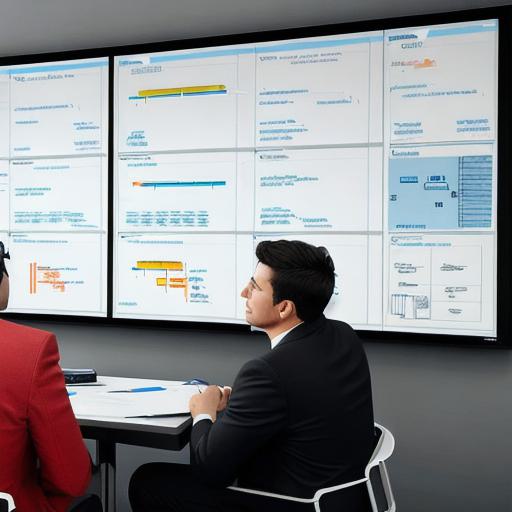What are the key principles and practices in software engineering

Software engineers are responsible for designing, building, testing, and maintaining software systems that are reliable, efficient, and user-friendly. They use their technical expertise to solve complex problems and develop solutions that meet the needs of businesses and individuals. Software engineers work in a variety of industries, including healthcare, finance, technology, and government, and they may specialize in areas such as web development, mobile app development, or systems analysis.

Education and Skills Required
To become a software engineer, you will typically need a Bachelor’s degree in Computer Science, Information Systems, or a related field. You will also need to have programming skills in at least one language, such as Java, Python, C++, or JavaScript. In addition, software engineers should have knowledge of data structures, algorithms, databases, and software development methodologies.
Software
Development
Life Cycle (SDLC)
The SDLC is a structured process used to develop software systems from conception to deployment and maintenance. It consists of several phases, including requirements gathering, design, development, testing, deployment, and maintenance. Each phase of the SDLC is crucial for developing high-quality software systems that meet the needs of users and stakeholders.
Requirements Gathering
During the requirements gathering phase, software engineers work with stakeholders to gather information about the project, such as its goals, objectives, and constraints. They may use techniques such as user stories, use cases, and flowcharts to document the requirements and ensure that everyone involved in the project has a clear understanding of what is expected.
Design
In the design phase, software engineers use the requirements gathered during the previous phase to create a high-level design for the software system. They may use diagrams, flowcharts, or other visual aids to help communicate their ideas and ensure that everyone involved in the project understands how the system will work.

Development
During the development phase, software engineers write code to implement the design created in the previous phase. They may use programming languages such as Java, Python, or C++, depending on the type of software they are developing. They also test their code thoroughly to ensure that it meets the requirements and is free from bugs and errors.
Testing
The testing phase involves verifying that the software system meets the requirements and is functioning as expected. Software engineers may use a variety of testing techniques, such as unit testing, integration testing, and system testing, to ensure that the software is reliable and efficient.
Deployment
Once the software system has been tested and verified, it is deployed to the production environment where it will be used by users. The deployment process involves installing the software on servers or computers, configuring the environment, and ensuring that everything is working correctly.
Maintenance
The maintenance phase involves making updates and improvements to the software system after it has been deployed. Software engineers may fix bugs, add new features, or improve the performance of the system to ensure that it continues to meet the needs of users and stakeholders.
Best Practices for Software
Development
There are several best practices that every software engineer should follow when developing software systems. These include:
- Writing clean and modular code: Software engineers should write code that is easy to read, understand, and maintain. They should also break down their code into smaller, more manageable modules that can be reused in other projects.
- Using version control: Version control systems such as Git or SVN help software engineers keep track of changes to their code over time. This allows them to collaborate with others, revert changes if necessary, and maintain multiple versions of their code.
-
Testing
their code thoroughly: Software engineers should test their code thoroughly to ensure that it meets the requirements and is free from bugs and errors. They should use a variety of testing techniques, such as unit testing and integration testing, to ensure that everything is working correctly.
- Documenting their code: Software engineers should document their code clearly so that others can understand how it works. This includes writing comments, creating documentation, and using tools such as Javadoc or Doxygen.
- Collaborating effectively with their team: Software engineers should work collaboratively with their team members, stakeholders, and customers to ensure that everyone involved in the project has a clear understanding of what is expected. They should be able to communicate complex technical concepts in simple terms and listen actively to others.
Emerging Technologies
The field of software engineering is constantly evolving, with new technologies and programming languages emerging every year. Some of the emerging technologies that software engineers should stay up-to-date with include:
- Artificial intelligence and machine learning: These technologies are becoming increasingly important in many industries, including healthcare, finance, and transportation. Software engineers who have expertise in these areas will be in high demand.
- Cloud computing: Cloud computing allows businesses to store and process data on remote servers instead of their own computers. This can provide cost savings, scalability, and flexibility.
- Internet of Things (IoT): IoT refers to the network of devices that are connected to the internet and can communicate with each other. Software engineers who have expertise in this area will be able to develop software systems that control and monitor these devices.
- Blockchain technology: Blockchain is a decentralized database that is used to securely store and transfer data. It has applications in many industries, including finance, healthcare, and supply chain management.
Conclusion
Software engineering is a complex and rapidly evolving field that requires a combination of technical skills, creativity, and communication abilities. Software engineers who follow best practices, stay up-to-date with emerging technologies, and collaborate effectively with their team members will be well-positioned to succeed in this exciting field.